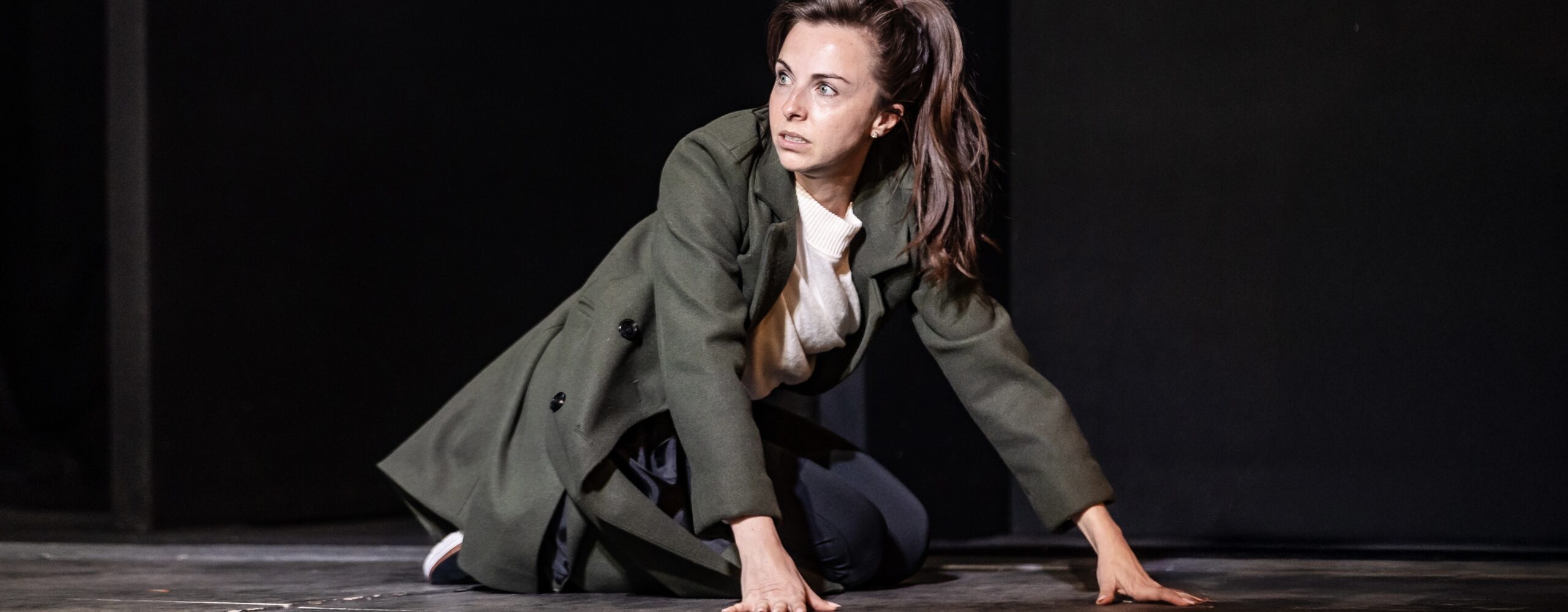Adapted from Paula Hawkins’ bestselling novel, The Girl on the Train delivers a taut and psychologically-charged thriller that translates well to the stage, thanks to a clever set, strong performances and an ever-present undercurrent of unease.
 At the heart of the story is Rachel Watson, played by the talented Louisa Lytton (best known for her role as Ruby Allen in Eastenders for the past two decades). She’s an emotionally fragile woman, whose life has unravelled following the breakdown of her marriage to ex-husband Tom (Jason Merrells). Travelling each day on the same train, she fixates on the seemingly perfect couple she sees from her carriage window, until one day the woman, Megan (Natalie Dunne), disappears. As Rachel is drawn into the investigation, her unreliable memory and alcohol-fuelled blackouts make her both a compelling narrator and a suspect in her own story.
At the heart of the story is Rachel Watson, played by the talented Louisa Lytton (best known for her role as Ruby Allen in Eastenders for the past two decades). She’s an emotionally fragile woman, whose life has unravelled following the breakdown of her marriage to ex-husband Tom (Jason Merrells). Travelling each day on the same train, she fixates on the seemingly perfect couple she sees from her carriage window, until one day the woman, Megan (Natalie Dunne), disappears. As Rachel is drawn into the investigation, her unreliable memory and alcohol-fuelled blackouts make her both a compelling narrator and a suspect in her own story.
The production cleverly captures the disorientation Rachel feels. The set design is a real standout — a collaboration between Adam Wiltshire, Jack Knowles and Dan Light. It is fluid and cinematic in its transitions, with panels shifting to create different spaces, and atmospheric effects like rain on the windows reinforcing the sense of isolation and claustrophobia. The movement of the train is particularly well done, immersing the audience in Rachel’s world and blurring the line between memory, imagination and reality.
 The cast are uniformly strong with Rachel’s internal turmoil portrayed by Lytton with emotional honesty and just the right level of vulnerability. Her interactions with the other characters, especially DI Gaskill (Paul McEwan) and Scott (Samuel Collings), are loaded with tension. The sense of Rachel clawing her way back to the truth from beneath layers of gaslighting and self-doubt is both frustrating and moving to watch.
The cast are uniformly strong with Rachel’s internal turmoil portrayed by Lytton with emotional honesty and just the right level of vulnerability. Her interactions with the other characters, especially DI Gaskill (Paul McEwan) and Scott (Samuel Collings), are loaded with tension. The sense of Rachel clawing her way back to the truth from beneath layers of gaslighting and self-doubt is both frustrating and moving to watch.
That said, there’s one key moment where I found myself wondering how clearly the story would land for someone unfamiliar with the book or film. When Rachel finally realises that Tom, not she, is the true villain of the piece — having manipulated her into believing she was unstable — the scene feels quite brief. It’s a pivotal emotional turning point, and while it’s powerful, a little more space might have helped the full impact resonate, especially for those experiencing the story for the first time.
Still, this is a gripping production that maintains suspense throughout. The blend of mystery, emotion and psychological complexity makes The Girl on the Train an absorbing night at the theatre. It may move at speed — much like the train itself — but the journey is a dark and fascinating one.







